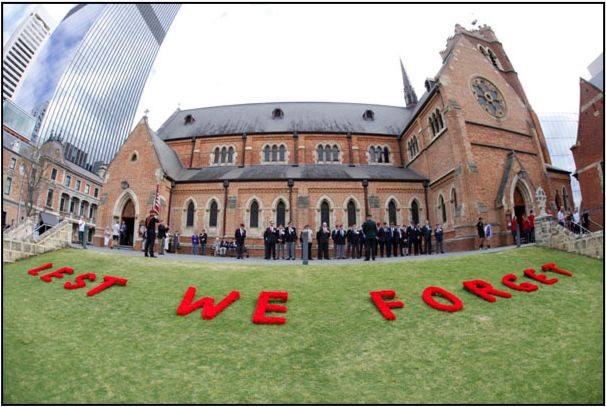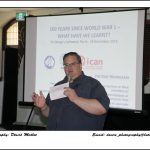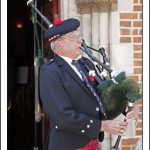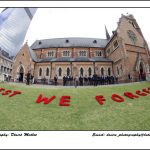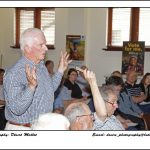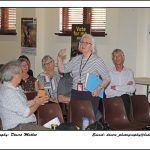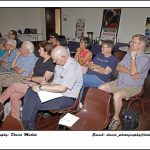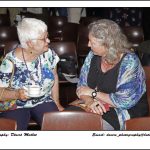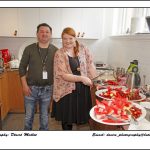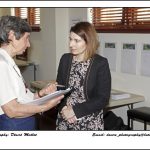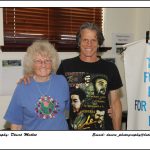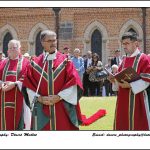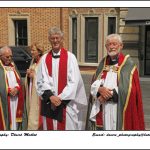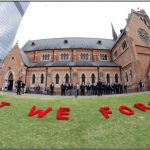Over the weekend more than 60 people gathered for the Perth Peacemaking Conference to coincide with the 100 year anniversary of the end of WW1.
An impressive range of speakers provided insight, challenge and inspiration as the group considered what has been learnt 100 years on. Are we moving towards a more peaceful world? What can we do to be better peacemakers?
It was a special privilege to hear from Dr Sue Wareham, President of the Medical Association for the Prevention of War.
Sue has been a strong advocate for peace, championing the cause for an international ban on nuclear weapons. She provided a cutting critique of the involvement of weapons manufacturers in Australia, the disturbingly disproportionate expenditure on the military compared to the UN’s Sustainable Development Goals, and the decision making process that leads Australia into war.
Rev Dr Chris Walker contributed a number of elements to the conference, most notably giving the sermon to a packed Armistice service at St George’s Cathedral Perth. Chris unpacked some of the theological traditions of non-violence, continually calling us back to Jesus’ message calling us to be active peacemakers.
To provide us with a history of peacemaking efforts in Western Australia the inimitable Jo Vallentine offered an inspiring presentation. Starting from the two referendums that rejected conscription during the First World War, through to prevention of uranium mining in WA as the starting point of the nuclear weapons fuel cycle, Jo gave an enlivened account of war resistance in Australia, including accounts of her own arrests for civil disobedience.
Dr Joel Hodge and Felicity McCallum, both experts in the theological theories of Catholic philosopher Rene Girard, gave some eye-opening assessments of the Australian ANZAC narrative. Joel warned against the perils of over-sacralising the ‘sacrifice’ story of Australian diggers in the Australian identity while Felicity, an Awabakal woman, suggested that the ANZAC story could be a deflection away from the violent colonisation that is a more fundamental, but hidden part of our national identity.
The Peace Conference also heard the unanimous call from seven faith leaders that violence is an unacceptable solution to conflict as it always leads to trauma, dislocation, suffering, death, division or further violence. In an inspiring session, it was encouraging to hear different world-views find agreement in the need for robust dialogue, rooted in compassion, as a basis for peacemaking.
Conference participants were treated to further breakout sessions on racism, Stolen Generations, non-violent direct action, Palestinian human rights, prison reform, and seeking asylum in Australia. Many people gave glowing feedback on the quality of the speakers and signed themselves up for a range of activities and petitions, including this Commemorate not Commercialise campaign to stop weapons makers’ sponsorship of the Australian War Memorial.
Geoff Bice
